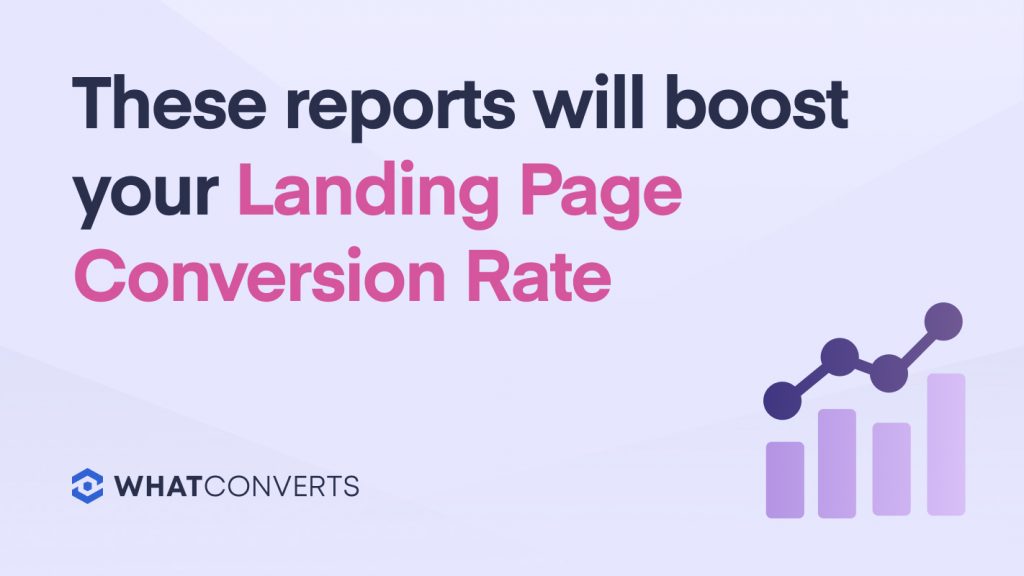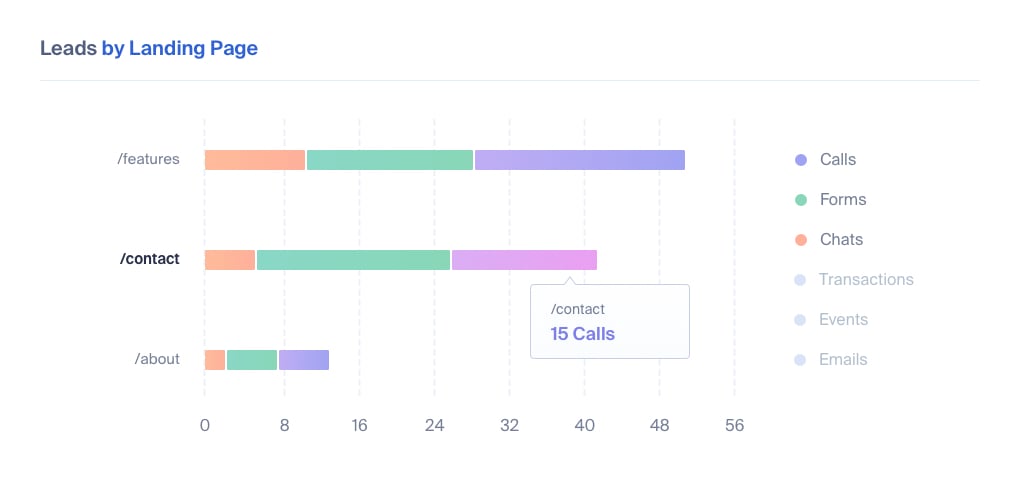
There are two things marketers must pay close attention to in order to improve landing page conversion rate; landing page reports and lead page reports.
First, a couple definitions.
The landing page is the page a website visitor ‘lands’ on after clicking a link to your website. The visitor may be coming from organic search results, an ad, an email, or any other source.
The lead page is the page a website visitor is on when they perform a conversion action; i.e., became a lead. Typical conversion actions include calling, filling out a web form, initiating a web chat or completing an eCommerce transaction.
Now, more than ever, it's vitally important to figure out which marketing is driving revenue and which campaigns are losing money. You must know, for example, if your SEO efforts are working or if you should be aggressively rolling out PPC ads. Our friends at HubShout have a great piece on this topic.
In our own post, we'll explain how you can (a) see how people are finding your site and (b) see how they're converting to become leads. It's all possible with landing page and lead page reports.
The two reports that can improve landing page conversion rate:
Landing page reports reveal which pages leads landed on, and which marketing source brought them there. Lead page reports (sometimes called conversion page reports) reveal which pages inspire your website visitors to get in touch.
Combined, these reports allow you to understand how people learn about your business and become convinced to reach out.
These insights reveal the customer journey, identifying your most effective marketing campaigns and giving you a blueprint to repeat the successes of your most effective web pages.
When to use landing page reports:
Landing page reports can show you which marketing campaigns drive quality conversions by revealing which pages your best leads land on. Say you have a PPC ad that delivers users to a blue web page, and a Facebook Ad that delivers users to a red web page.
By analyzing the landing page reports, you can see which ad is delivering more traffic. You’ll also be able to see which leads landed on which pages. Did the blue landing page or red landing page deliver more qualified leads? These reports show which landing pages keep people’s attention; enticing them to continue clicking around until they’re convinced to convert.
When to use lead page reports:
Lead page reports provide you with a guide to improving your website’s conversion rate. Certain pages on your site inspire people to convert. Lead page reports identify those pages. After looking at the report, you’ll know which pages work, and you can repeat the elements on those successful pages throughout your site.
Both reports also let you dive into the lead data to see what kinds of leads each page is delivering. Are the leads quotable, or junk?
A quotable lead is:
- Interested in buying your product/service
- Able to afford your product/service
- Showing potential for long-term business
Some people take conversion actions even though they aren’t interested in making a purchase. These “leads” must be disqualified before they skew your data.
A lead must be disqualified if its a:
- Solicitor making a sales call
- Spammer
- Bad product/service fit
What about the web page reports in Google Analytics?
Google Analytics has page reports, but they’re filled with marketing-specific metrics; views, bounce-rate, session duration, conversions, etc. These metrics tell you nothing about which pages delivered the best leads and most valuable sales.
Google’s reports show conversion actions but don’t tell you whether or not those leads are qualified, and don’t account for phone call conversions — which many businesses rely on for their best leads.
By getting a call tracking tool and including phone call conversions, you can judge each landing page based on 100% accurate data. When you capture every conversion action, including calls, you ensure you’re not letting any leads slip through the cracks. Without phone call leads, you’re dealing with faulty data.
This kind of detailed lead data links marketing to sales. From the sales team's point of view, leads are valuable because they’re opportunities to generate sales. More opportunities lead to more sales.
From the marketing team’s point of view, generating quality leads is how the team gets a bigger budget and proves value. Success leads to more success.
Lead-based web page reports bridge the gap between marketing and sales, focusing on the end-result of the marketing efforts.
Start a free trial of WhatConverts and see how these reports can help your business' bottom line
Get a FREE presentation of WhatConverts
One of our marketing experts will give you a full presentation of how WhatConverts can help you grow your business.
Schedule a Demo
Grow your business with WhatConverts






